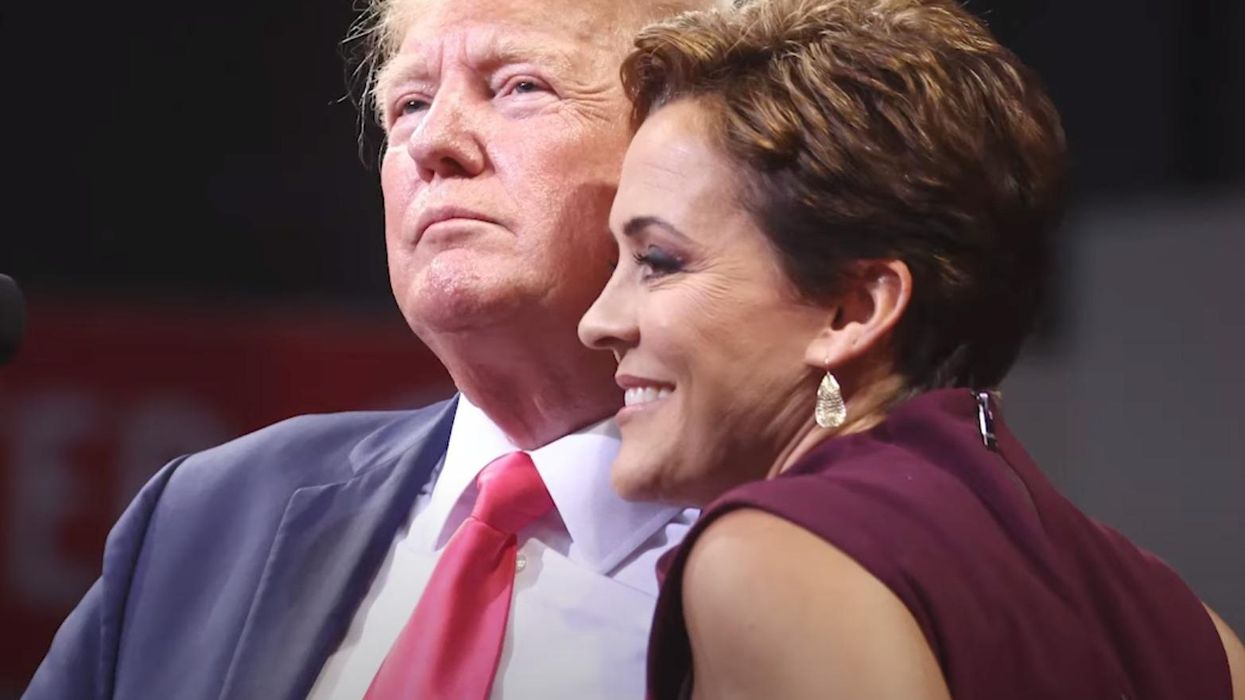GOP Senate Candidates Are Just Plain Weird -- Especially About Women
Now that Ohio Sen. JD Vance has been elevated to the national stage as Donald Trump’s running mate, we’re getting a very good look at just how, well, weird Republicans are. Central to that weirdness is how overtly hostile they are to women.
Right now, Vance is garnering most of the headlines—and for good reason. His jibes about miserable “childless cat ladies” and working mothers who “shunt their kids into crap daycare so they can enjoy more ‘freedom’ in the paid labor force” barely scratch the surface of his anti-woman attitudes.
Vance’s extreme misogyny is turning out to be a drag on the GOP ticket—and a big problem for Trump. But Vance isn’t the only one appearing on ballots this fall while expressing the idea that childless women have no worth and therefore shouldn’t have a say in society. There are plenty of GOP Senate candidates who have that same fundamental problem with women, and the spotlight is going to turn on them, too.
Take Nevada’s Sam Brown and his long history of extreme anti-abortion activism. He’s been trying desperately to walk that back, but he can’t walk away from the actions he’s taken and the deplorable things he’s said.
Like when he was still living in Texas and running for the state legislature there. He lost and then endorsed one of the two women who went on to the runoff because, according to him, she was more qualified. That qualification? She had “shared experience” in the community, he said, whereas her opponent was “not married with children to provide for or nurture.”
When called out on making such a baldly sexist statement, he dug his hole even deeper.
“I would be fundamentally disqualified from the definition of a sexist because I’m endorsing a woman," he said. He probably has a lot of Black friends, too.
How sexist is Brown? The “resources for women” section of his campaign website simply lists crisis pregnancy centers—the health care “clinics” tricking pregnant people into thinking they’re getting actual medical care.
Of course, it’s not just men who are sexist. Case in point: Arizona Senate candidate Kari Lake. Her anti-woman policy positions are bad enough, but they seem to spring from her fundamental belief that women are less than men. She has said again and again that men and women aren’t equal. It’s a key theme for her.
- In a June 2021 interview on “Backyard Politics,” Lake repeated that “We are not equal to men.”
- In a November 2021 interview with the American Monetary Association, Lake reiterated that women are “being told […] to strive, to be equal to men. And you know what? We aren’t equal to men.”
- In an August 2022 interview on “Louder With Crowder” that was since deleted due to violations of YouTube’s misinformation standards, Lake told Steven Crowder, “God did not create us to be equal to men.”
In 2022, Lake even made a show out of vacuuming a rug that Trump would soon appear on. This move garnered praise from Newsmax host Benny Johnson, who praised her “servant leadership.”
Meanwhile, MSNBC journalist Ja’han Jones said the image “perfectly embodies former President Donald Trump’s relationship with the GOP and the GOP’s relationship with women.”
This casual sexism from male and female Republicans alike can veer from mildly amusing to outright shocking. Another example is Wisconsin’s Eric Hovde. When he was running for Senate back in 2012, he liked to talk about how he was “very concerned where this country is heading socially and morally” because of single mothers.
In 2016, Hovde showed just how anachronistically sexist he is.
“Most of the country, sadly, doesn’t know what the heck is going on … I like to say, sadly, with females, they spend too much time with what’s going on in Hollywood,” he said. “And with males, they engross themselves too much with sports. And now it’s not just sports, it’s fantasy sports.”
Rounding out the disturbing things coming out of Republican mouths, there’s Tim Sheehy, who is taking on Democratic Sen. Jon Tester in Montana, and this weirdness. He was complaining about Tester’s political attacks on him when he said something puzzling.
“People ask me, how do you fight back?” Sheehy said. “Number one, I can’t, because it’s like, if you’re not a rapist, how do you prove you’re not a rapist? I can’t prove it, it’s impossible.”
That’s not just a bizarre analogy to land on, but it’s problematic. He’s baldly assuming that women lie about rape. Good to know.
The whole raft of bad Republican Senate candidates has widespread problems this cycle. But the GOP’s problem with women is flowing from the top of the ticket—and it’s going to hurt them at the ballot box.
Reprinted with permission from Daily Kos.












